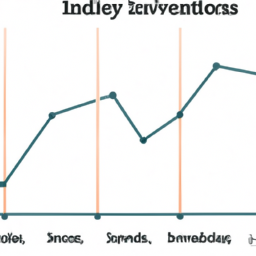Investment income is becoming an increasingly popular source of passive income for many Australians. With prices of home loans, energy and groceries sky-rocketing, Aussies are turning to passive income investments for additional cash. Investment income is money earned through financial assets or accounts, and comes in three forms: interest, dividends, and capital gains. In this article, we will explore the different types of investment income, their benefits, and how they can provide financial stability.
Interest income is the most common form of investment income. This type of income is earned through investments such as bonds, certificates of deposit (CDs), and savings accounts. Interest income is typically paid out on a regular basis, such as monthly or quarterly. The benefit of interest income is that it is generally considered low risk and provides a steady stream of income.
Dividend income is another type of investment income. This type of income is earned through stocks that pay dividends to their shareholders. Dividend income is typically paid out on a quarterly basis and can provide a higher rate of return than interest income. The benefit of dividend income is that it can provide a reliable source of passive income.
Capital gains are the third type of investment income. This type of income is earned when an investor sells an asset, such as a stock, for a profit. Capital gains are taxed at a lower rate than regular income, making them an attractive option for many investors. The benefit of capital gains is that they can provide a significant source of income if the asset is sold at a high price.
If your investments recently made any money, you might owe something called the net investment income tax (NIIT) on your profits. The NIIT is a 3.8% tax on certain types of investment income, including interest, dividends, and capital gains. The tax applies to individuals with a modified adjusted gross income of $200,000 or more and married couples with a modified adjusted gross income of $250,000 or more. It is important to consult with a tax professional to ensure compliance with NIIT regulations.
High-dividend stocks can be a good choice for investors who want to earn passive income. These stocks are typically issued by companies with a strong financial standing and a history of paying dividends to their shareholders. Investors can research high-dividend stocks and choose ones that fit their investment strategy. Some examples of high-dividend stocks include AT&T (T) and Verizon (VZ).
These rock-solid income stocks sport an average yield of 9.66% and can pad the pocketbooks of patient investors. These stocks may be a good option for investors who are looking for a reliable source of passive income. It is important to research these stocks and ensure that they fit within your investment strategy.
Investors approaching retirement, or who are already retired, should typically look for securities or other products that generate income. These products could include bonds, CDs, or dividend-paying stocks. The benefit of these products is that they can provide a steady stream of passive income during retirement.
The logic behind investing or paying off your mortgage if you come into a windfall of money depends on factors such as the terms and interest rate of your mortgage, your investment goals, and your risk tolerance. It is important to consult with a financial advisor to determine the best course of action for your individual situation.
A host of investment funds are ineligible for a Washington business and occupation tax deduction for their investment income because the funds invested in marijuana-related businesses. This highlights the importance of researching investment options and understanding the potential risk and regulations associated with them.
In conclusion, investment income can provide a reliable source of passive income for investors. By understanding the different types of investment income and their benefits, investors can make informed decisions and create a diversified investment portfolio. It is important to consult with a financial advisor and tax professional to ensure compliance with regulations and to create a personalized investment strategy.
Ticker: T, VZ
